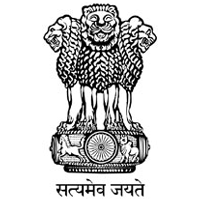Cooperative Federalism and 14th Finance Commission Recommedations
The constitution of India establishes a federal system of government which includes features such as written constitution, two governments, supremacy of constitution and others. However the term Federation is not mentioned in the Indian constitution while Article 1 describes India as Union of states which means a strong centre. It is because of the unique nature of Indian federalism it is termed as Quasi federal. The term Cooperative Federalism is termed by late Granville Austin.
The post independence India saw several efforts to revamp the centre-state relation. 14th Finance commissions have been set up till date, each suggested revamping the relations. The recommendation of 14th Finance Commission headed by Y.V. Reddy is a step towards strengthening the cooperative federalism. The approach of new government in this regard is commendable. Setting up of NITI Aayog and the consensus on implementation of Goods and Services tax and now giving nod to the more devolution of funds are the important steps in the federal landscape.
Recommendation of 14th Finance Commission
Among the major recommendation it includes the centre to share 42% of the divisible pool of tax to the states which is 10% more than the present share. It recommended doing away with the distinction between unconditional and conditional transfers. Previously the transfers were a mix of conditional and unconditional funds, where the conditional transfers is given for serving some specific purpose. Here the state having the flexibility to utilize the conditional transfers as per the needs.
The commission, on deciding the share of states has done away with the component of previous commission namely, fiscal discipline. Instead it introduced two new components that are changes in population between 1971 and 2011 and giving credit to the success in retaining forest cover. The other components to decide upon the share of state are – per capita income, traditional population and the areal considerations.
The commission along with recommended on implementation of Goods and Services Tax and laid out a fiscal road map for the economy. It proposes a compensation mechanism to states which is still under consideration. It made recommendation for greater devolution of finances to the local bodies including the municipalities and Panchayats and also incentivizing them for better fiscal performance.
The government is now looking to restructure the central schemes with better targeting the schemes where it is required the most. Now with the strengthened participation of the states the central schemes would be need based, which means doing away with the one-size-fit-all approach. Now the educational schemes in a state would be funded only in case of poor standard of education.
Which means states would now enjoy the autonomy to decide their development priority and spend on programmes tailored to their needs. It is a step in the right direction would further strengthen the centre-state relation and would rationalize the funding.


